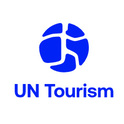Women’s Empowerment ‘Centre Stage’ of Tourism’s Restart
The shared progress being made in putting women’s empowerment ‘centre stage’ of tourism’s restart has been presented at the World Travel Market in London.
With the pandemic having made clear the extent to which women and girls everywhere are disproportionately affected by crisis, UNWTO partnered with the German Federal Ministry for Economic Cooperation and Development (BMZ), Deutsche Gesellschaft für Internationale Zusammenarbeit (GIZ), and UN Women to put gender equality at the heart of recovery plans. The Center Stage project was piloted in four countries – Costa Rica, Dominican Republic, Jordan and Mexico – bringing on board both governments and businesses as well as NGOs and community associations.
As part of the initiative, UNWTO conducted a survey on the impact of COVID-19 on tourism employment. The research found that, between March 2020 and September 2021, women in tourism were:
- 3% more likely to lose their job, 8% more likely to have a pay cut and 8% more likely to have reduced working hours in Costa Rica.
- 5% more likely to lose their job, 2% more likely to have reduced working hours and 12% more likely to have a pay cut in the Dominican Republic.
- 4% more likely to lose their job, 8% less likely to have a pay rise and 20% more likely to pay someone to look after their dependents in Jordan.
- 3% more likely to lose their job, 8% more likely to have a pay cut and 3% more likely to take time off to care for their dependents in Mexico.
UNWTO’s pioneering ‘Centre Stage’ project was designed to address this, working with 3 governments, 38 businesses and 13 civil society organizations to implement year-long gender action plans.
The project has produced the following results:
- 702 businesses/entrepreneurs received gender-equality training
- 712 people received in-person training
- 526 women received a promotion
- 100% of participating businesses strengthened sexual harassment prevention
- 100% of participating businesses committed to ‘equal pay for work of equal value’
- 1 hour online ‘Gender Equality in Tourism Training’ course on atingi.org
- Gender Mainstreaming Guidelines for the public sector
- Gender Inclusive Strategy for tourism businesses
- An awareness campaign at global scale about gender equality in tourism.
As we rethink the future of tourism, it must be one in which women and men are equally empowered to take the opportunities that the sector’s restart is bringing. The four pilot countries have led the way in putting gender-equality centre stage of their tourism recovery plans and UNWTO is committed to taking this work further and wider. UNWTO Secretary-General, Zurab Pololikashvili
For more information on the report contact: [email protected].
RELETED LINKS:
- Centre Stage Project
- Centre Stage: presentation of the results event
- Women's empowerment and tourism
About UN Tourism
The World Tourism Organization (UN Tourism), a United Nations specialised agency, is the leading international organisation with the decisive and central role in promoting the development of responsible, sustainable and universally accessible tourism. It serves as a global forum for tourism policy issues and a practical source of tourism know-how. Its membership includes 166 countries, 6 territories, 2 permanent observers and over 500 Affiliate Members from the private sector.
Media enquires: [email protected]
UN Tourism Communications Department
+34 91 567 8100
UN Tourism
